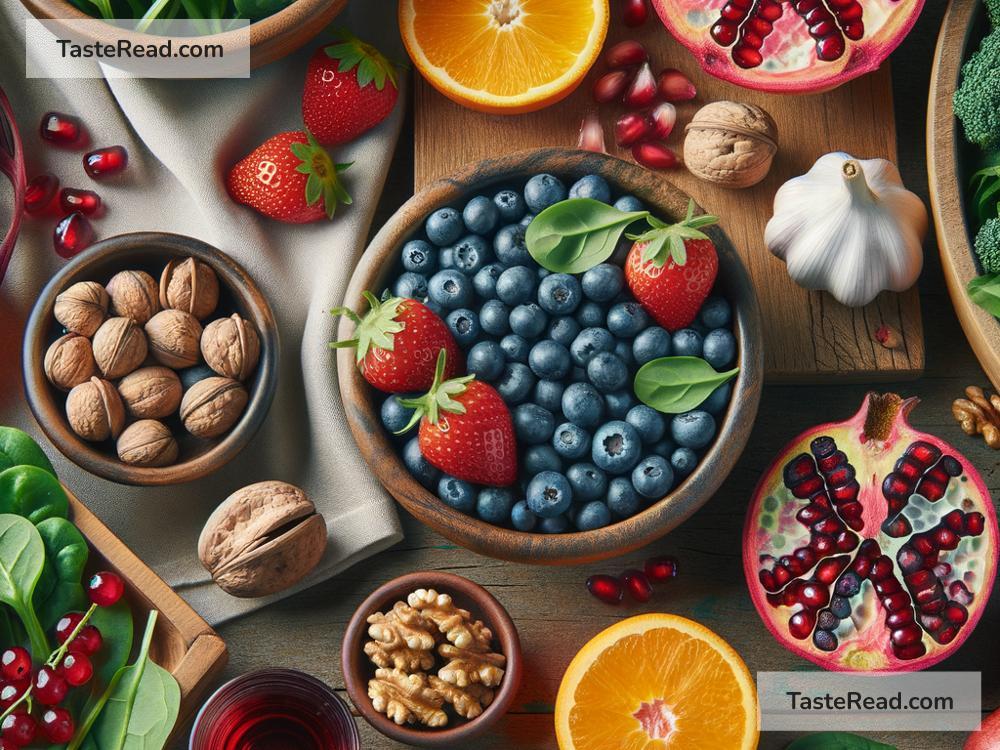Foods That Support Healthy Veins
Your veins play an essential role in your body, carrying blood back to your heart. Healthy veins keep your circulation running smoothly, which supports your overall health. But did you know that the food you eat can directly impact the health of your veins? That’s right, certain foods can help strengthen veins, improve circulation, and prevent vein-related issues like varicose veins and blood clots. In this article, we’ll explore simple, everyday foods that support healthy veins.
Why Venous Health Matters
Veins are the highways of your circulatory system—returning oxygen-depleted blood to your heart for reoxygenation. To do this, veins rely on small valves to ensure that blood flows in the right direction. When these valves weaken or break down, issues like varicose veins, spider veins, or chronic venous insufficiency can occur.
Taking steps to support your veins, such as eating the right foods, can lower your risk of these problems while boosting overall circulation.
1. Leafy Green Vegetables
Leafy greens like spinach, kale, and collard greens are incredibly beneficial for your veins. They are rich in antioxidants and nutrients, like vitamins C and K, which strengthen blood vessel walls and improve circulation.
Vitamin K is particularly important because it helps blood clot properly and prevents bruising and internal bleeding in the veins. Meanwhile, the antioxidants in leafy greens fight inflammation and protect your veins from damage caused by harmful free radicals.
Add leafy greens to salads, soups, smoothies, or stir-fries for a healthy veins boost.
2. Berries
Berries, such as blueberries, strawberries, raspberries, and blackberries, are packed with antioxidants called flavonoids and anthocyanins. These compounds improve vein health by reducing inflammation and supporting stronger blood vessel walls.
Berries are also great for improving circulation, which helps your veins work more efficiently. Plus, they’re naturally sweet and easy to add to yogurt, oatmeal, or desserts—or eat as a simple snack.
3. Citrus Fruits
Citrus fruits like oranges, lemons, grapefruits, and tangerines are rich in vitamin C. This vitamin is crucial for producing collagen—a protein that helps maintain the flexibility and strength of your blood vessels.
On top of that, citrus fruits contain bioflavonoids, which promote healthy blood circulation and reduce the risk of spider or varicose veins. Try drinking fresh orange juice in the morning, adding lemon slices to your water, or enjoying a ripe orange as a snack.
4. Whole Grains
Whole grains like oats, quinoa, brown rice, and whole wheat are excellent for vein health. They are rich in fiber, which helps prevent constipation—a condition that can increase pressure in the veins of your lower body.
When veins are under pressure due to straining or poor digestion, they can weaken over time. Eating enough fiber ensures smooth digestion and reduces additional strain on your veins. Pair whole grains with beans, lean proteins, or veggies for a balanced meal.
5. Avocados
Avocados give you plenty of heart-healthy fats along with vitamins C and E—two nutrients that play a role in vein health. Vitamin E helps protect your veins and arteries from oxidative damage, while vitamin C supports collagen production for strong vein walls.
Avocados also contain potassium, which helps improve blood flow by reducing swelling and preventing water retention in the veins.
Spread avocado on toast, toss slices into your salad, or blend some into a smoothie to enjoy its health benefits.
6. Nuts and Seeds
Nuts and seeds, like almonds, walnuts, chia seeds, and flaxseeds, are rich in omega-3 fatty acids and vitamin E. Omega-3s improve blood circulation by reducing inflammation and preventing blood from becoming too thick. Vitamin E, as mentioned earlier, protects your veins from oxidative damage.
Nuts and seeds also contain magnesium, which helps relax your blood vessels and promotes better circulation.
Snack on a handful of nuts or sprinkle seeds onto your yogurt or oatmeal for an easy way to nourish your veins.
7. Garlic
Garlic is a powerful food that helps with circulation and vein health. It contains a compound called allicin, which improves blood flow and prevents blood vessels from becoming stiff or clogged. Garlic has also been shown to reduce inflammation and improve vascular function.
Adding garlic to your meals—whether it’s pasta sauce, stir-fries, or roasted veggies—is a simple way to support your veins. If you prefer a stronger effect, consider eating raw garlic or using garlic supplements.
8. Fatty Fish
Fatty fish like salmon, mackerel, trout, and sardines are great sources of omega-3 fatty acids. These healthy fats are known for their ability to reduce inflammation and keep blood flowing smoothly through veins.
Omega-3s also help prevent blood clots, which can be beneficial for vein health. Try to include fish on your plate a couple of times a week for a nutritious vein-friendly meal.
9. Dark Chocolate
Here’s some great news for chocolate lovers: dark chocolate (70% cocoa or higher) can improve vein health. It contains flavonoids that promote better circulation and help prevent blood vessel damage.
However, balance is key—enjoy dark chocolate in moderation to avoid excess sugar intake.
Final Thoughts
Supporting vein health doesn’t have to be complicated—simply adding these nutritious foods to your meals can make a big difference. A diet rich in leafy greens, berries, citrus fruits, whole grains, avocados, nuts, garlic, fatty fish, and dark chocolate can strengthen your veins, improve circulation, and reduce the risks of vein-related issues.
Remember, healthy veins are a reflection of a healthy lifestyle. Combine these vein-friendly foods with regular exercise, staying hydrated, and avoiding prolonged sitting or standing. Over time, small changes can lead to big improvements in your vein health!
So, why wait? Take a step toward healthier veins today—your body will thank you!


